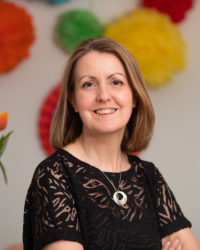Are "shoulds" and "musts" wearing you down?
How often do you think “I should be able to do this" or “I must do this because…”

Some of the common shoulds and musts I hear from my clients are:
- “I should be in a more senior position at work by now”
- “I must be more like my male peers if I am going to succeed in my job”
- “I should stop work at three so I can be there for my kids, but I must also finish my work”
- “I must do more exercise”
- “I should meditate more”
- “I must make more time to speak to family and friends”
- “I must have affirmation from my colleagues to know I’m doing a good job”
I’ve also had my own fair share of should and must moments this last year. My big ones being: “I should be able to continue to grow my business while homeschooling my kids” and “I must post on social media at least once a day”.
I didn’t do either of these!
With my coaching hat on, I recognised that despite frequently challenging clients on their negative thoughts I was spiralling into a pit of “shoulds” and “musts” myself.
As I held a metaphorical mirror up to myself I could see that this negative thinking was making me anxious. It was bashing at my self-belief, disempowering me into a way of thinking that was not about what I wanted but about what I thought others expected of me. I felt that choices were not in my control, they were driven by what I should and must do to ensure me and my family got through this tricky time.
This “should” mindset led me to feel like I’d let myself down. I felt guilty and frustrated when yet another week had passed and I hadn’t achieved what I’d told myself I “must” achieve. By holding these negative thoughts I was setting myself up for failure and disappointment.
For many of us the intensity of the last 12 months has amplified our negative thoughts. Our inner saboteurs have gone wild and our inner coaches have slunked into the shadows.
Should and must thinking is an example of a “cognitive distortion”: A pattern of thinking that is inaccurate or false and leads us to make assumptions about ourselves and the world around us that simply aren’t true.
“I should be able to do this thing, therefore by not doing it I must have something wrong with me”.

When we think in shoulds and musts we pay less attention to what is truly important to us and strive to be something we are not. We stop thinking about what we want and what we are good at that can help us. This creates anxiety, worry and dissatisfaction. It belittles our internal values and our inherent strengths - the very things that drive who we are and who we want to be.
Challenging our shoulds and musts
By noticing when we are slipping into these negative thoughts and what is triggering them we can challenge them and begin to switch to a more positive and useful mindset.
We can start to turn our externally validated shoulds and musts into internally chosen wants and wishes, and draw on our strengths and personal values to respond to these.
“I should stop work at three so I can be there for my kids, but I must also finish my work” might become “I want to stop work at three as it is healthy for me and my kids to spend time together. However I also wish I could finish my work so that I feel less anxious about it”
This shift puts our decisions in our control, it is now something we want to do. We therefore have within our power to work out how we are going to make that happen to the best of our ability and in a way that sits well with us. We can decide our boundaries and what we might choose to stop doing or to do differently.
As I’m sitting here writing this I’m thinking “I should make myself some lunch as I feel hungry, but I must finish writing this before I lose my flow”. Immediately I feel a bit stressed!
Switching to a more positive thought pattern: “I want to have lunch as I’m hungry and I know it will help me concentrate better later, and I also want to capture my thoughts while I am in flow as I know I may find it hard to come back to later”.
Now this is in my control! No shoulds or musts; just two things I want to do and it’s for me to decide how I spend my time. So, instead of feeling anxious that I haven't got time to do these two things, I am going to get some initial thoughts down in note form, then have lunch, then come back to this later.
Ahh, that feels so much better! See you after lunch!

Find a coach dealing with Personal development
All coaches are verified professionals



